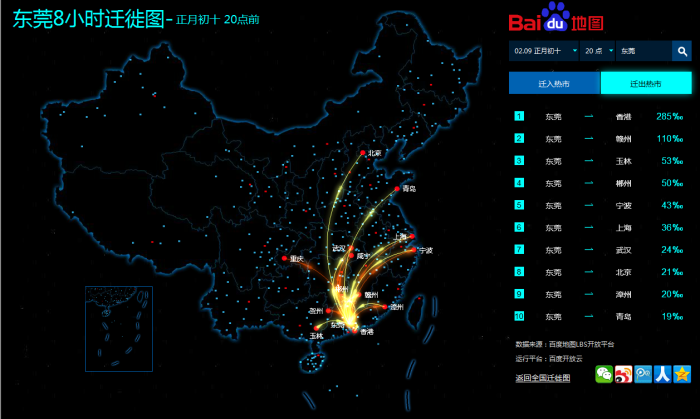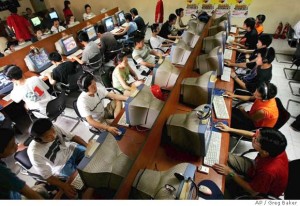New “Smart Chopsticks” Tell You If Your Food Is Poisonous
Posted: 09/4/2014 1:14 pm China has been hit with several food scandals in recent years (which we’ve covered extensively here, here, here, here, here, here, and here), making some scared to even risk dining out. Under such dire circumstances, what is a foodie supposed to do? Baidu, fresh off unveiling its glasses that allow you to wear the GFW on your head, thinks it has an answer.
China has been hit with several food scandals in recent years (which we’ve covered extensively here, here, here, here, here, here, and here), making some scared to even risk dining out. Under such dire circumstances, what is a foodie supposed to do? Baidu, fresh off unveiling its glasses that allow you to wear the GFW on your head, thinks it has an answer.
Kuaisou are a pair of “smart chopsticks” equipped with onboard sensors that test the quality of the food they touch. The information is then sent to your smartphone, so you can see whether what you are about to eat is actually safe.
Baidu CEO Robin Li called the product “a new way of becoming aware of the world.” 
Kuaisou can test for oil, water, temperature, pH levels, and nutritional information, and has three main features:
- The device can tell if fried food was made with “gutter oil” or re-used oil by passing a grade of “Excellent”, “Good”, or “Unacceptable”.
- Kuaisou can test drinks for their pH levels and determine the presence of mild acids.
- It can test fruit for their sweetness, variety, and source. Kuaisou are said to be able to determine if a red Fuji apple comes from Shandong or Shaanxi.
 Kuaisou will eventually be able to detect melamine in milk products and be able to discern the difference between real and fake lamb barbecue skewers.
Kuaisou will eventually be able to detect melamine in milk products and be able to discern the difference between real and fake lamb barbecue skewers.
The high-tech chopsticks are expected to go into production soon.

Related:
[h/t WSJ China Real Time]















